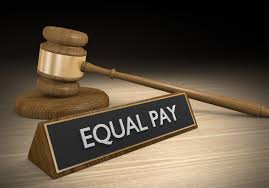 At a meeting of West Dunbartonshire Council on Wednesday 30th August Labour’s attempt to resolve “second wave equal pay claims” was thwarted by a coalition of SNP, Tory and independent councillors, determined to ensure that low paid female employees were denied compensation for unfair pay.
At a meeting of West Dunbartonshire Council on Wednesday 30th August Labour’s attempt to resolve “second wave equal pay claims” was thwarted by a coalition of SNP, Tory and independent councillors, determined to ensure that low paid female employees were denied compensation for unfair pay.
Commenting on the rejection Councillor Martin Rooney said:
“I was astounded that the SNP Councillors’ cold response to women who had been denied fair pay was basically to tell them ‘tough luck but you’re too late and we don’t want to pay’.
“Low paid female workers will feel utterly betrayed by this SNP Administration and will question whether they are fit to govern.
“This is a SNP-made inequality from 2009 and an SNP rejection of social justice for low paid women.”
Historic equal pay claims were settled in 2009. However, the particular arrangements imposed by the previous SNP administration at West Dunbartonshire Council created a new inequality, by placing women on the bottom of the new three-year pay scales and at the same time placing men at the top. This meant that female employees would not achieve pay parity until three years later.
When this new injustice became apparent, any employee who was placed at the bottom of the three-year pay scale while their male colleagues were placed at the top end of the scale was eligible to submit a claim for compensation.
The period for submitting a claim up to five years from the last day of the unequal pay regime in 2012, meaning the deadline for an employee to submit a claim was 31st March 2017. Any claims submitted after this date would be time barred but councillors were not made aware of the total number of claimants until after the deadline had passed.
Councillor Rooney added:
“The number of valid claims for compensation was not known until after 31st March 2017.
“As soon as Labour Councillors were made aware of the decision to settle and the concerns from employees a Motion was submitted for the June Council.
“Labours Motion would have cost £1.5m and helped an extra 1,082 employees who would have had a valid claim.
“The fact that their colleagues submitted a grievance and were proved right, means that all their co-workers would have had a valid claim.
“We already had enough resources to pay the compensation during this year but would have been willing to spread the cost over more than one financial year if required.
At the Council meeting Councillor Rooney argued that there was a moral case for paying staff that had lost out on the pay they were legally due.
Councillor Rooney said:
“This is a moral issue and a matter of social justice. We don’t need legal experts or SNP councillors to tell us that people have missed a deadline so we don’t have to pay them anything.
“The SNP tried to block the Motion in June but were unsuccessful. Now, with the support of Bailie Agnew and Tory councillor Sally Page they have rejected our calls for equality and social justice for low paid female staff.
“Councillors have the power to right the wrongs being forced upon these women workers but the SNP would rather turn a blind eye.”
“Labour will not give up the fight for equal pay and we will use every opportunity to force an SNP u-turn.
Note 1: A copy of the Labour Motion is set out below:
MOTION: ITEM 6 – EQUAL PAY
This Council thanks all those involved in preparing the report for consideration by Councillors today but notes that the recommendations do not match the intent of the original motion. There is a significant number of employees who believe that they lost out on second wave equal pay claims.
First Wave Claims: The Council settled historic equal pay claims in 2006 and 2008/9 through compensation payments. In 2009 implemented the nationally agreed job evaluation scheme and revised terms and conditions and paid a compensation to all affected employees to buy out previous terms. The particular solution was implemented by the SNP Administration and opposed by the Labour Group of Councillors and the SSP. Some individual employees refused to accept the compensation deal and instead opted to pursue their claims through the employment tribunal process. The outstanding first wave equal pay claims concluded.
Second Wave Claims (Pay Protection Claims): Although the SNP Councils imposition addressed historic equal pay issues, the pay preservation for male employees meant that men were placed at the top of the three-year pay band while female colleagues were placed at the bottom of the three-year pay band. It would, therefore, take three years of incremental pay rises for female staff to achieve parity with their male colleagues. As a result, 600 employees initiated the second wave equal pay claims seeking compensation for the unequal treatment between 2009 and 2012. The three years of pay inequality.
Second Wave Claim Period: Second wave equal pay claims had to be submitted within 5 years of the three years of pay inequality, so all claims had to be submitted by 31st March 2017 to be eligible. Any claims received after this date would be time barred. Of the 600 claims, 400 were deemed valid and 200 were either struck out or withdrawn.
Implications of the Motion of 28th June The Council can look at all groups of employees with successful Employment Tribunal Claims and a settlement (the 400 identified above) and identify others in the workforce who would have been eligible for compensation had they submitted a claim. This is the moral argument made at the June Council meeting.
Financial Implications: The financial implications within the report suggest that the options would cost between £1m and £4m. However, option 3 appears to best relate directly to second wave claims and affects 1,082 employees who did not lodge a claim and would cost circa £1.5m.
This Council therefore calls on the Chief Executive to develop detailed costings for this option and to explore potential payment methods, with a report to come to a future Council meeting for decision.
Note 2: A copy of the SNP Amendment is set out below:
Councillor Caroline McAllister, seconded by Councillor Karen Conaghan moved an amendment as follows:
“The Council notes the progress and actions taken to date, and agrees that no further action should be taken in respect of this matter.”
Labour’s motion on Equal Pay was defeated by 11 votes to 8.
Note 3: A range of options were explored by Council officers:
- Option 1 – payment to those who lodged a claim but were not made a settlement offer because their claim was not valid and consequently withdrawn/struck out by the Employment Tribunal. This would include all Grade 1 claimants who had their claims struck out by the Employment Tribunal Service as they had no relevant comparator. Option 1 could apply to 183 employees and is essentially a literal interpretation of the motion resulting in payment to those who have no right or entitlement to receive such a settlement, i.e. they were not in detriment, as determined through a legal process. No estimated cost provided.
- Option 2 – payment to those who did not lodge a claim but who are employed in the same roles as the main claimant job groups, i.e. catering, cleaning and care. This would apply to circa 750 employees who did not lodge a claim, circa 546 of whom are trade union members (as far as we are able to check through payroll ‘check off’ deductions). Estimated one off cost £1m.
- Option 3 – payment to all employees in all claimant job groups (this would extend the group to include, for example, all Learning Assistants, Coaches, Clerical/Admin Assistants, Libraries Assistants to name a few). Note that this would apply to circa 1,082 employees who could have but did not lodge a claim, circa 796 of whom are trade union members. Estimated cost £1.5m.
- Option 4 – payment to all employees in Grades 3, 4 & 5 (see paragraph 4.1 above for rationale, circa 2,042). Estimated one off cost £2.3m.
- Option 5 – payment to all employees in all claimant groups, including those who have subsequently left the Council’s employment and who could have but did not lodge a claim (circa 2,865). Estimated one off cost £4m.
Note 4: Reserves and Equal Pay Provision:
The General Fund position as at 31 March 2017, the Accounts showed a General Fund balance of £10.665m.
Of this balance, £6.083m is earmarked for specified purposes, leaving an unearmarked balance of £4.582m. The unearmarked balance is greater than the prudential reserve target of £4.104m.
Provisions for Single Status and Early Severance were also made at 31 March 2017, totalling £3.223m and this sits out with the unearmarked balance. (£1.251m for equal pay and £1.98m for Early Severance).
A total of £1.251 million is held as a provision for the settlement of equal pay claims. However, only £751,000 is required leaving a surplus or balance of £500,000.
The Council had an in year surplus of £1.926m 2016/17 estimate.
Note 5: Early Severance:
The original amount set aside for equal pay and Early Severance/Trawl was £4.643m. £2.243m for equal pay and £2.400m for Trawl.
Note 6: Savings approved by committees during the financial year 2017/18 as at 30th August 2017:
- Playdrome Rateable value – £580,500 (£214,000 year 1 and £256,000 year 2 following demolition).
- Purchase to Pay – £85,000.
- Civic Ceremonies charges – £5,000.
- Capital Receipt Langraigs – £975,000.
- Capital Receipt Carrochan – £1,069,000.
Note 7: Distributing potential costs of equal pay:
If necessary, the one-off costs of equal pay could have been paid out over two financial years to minimise the burden. The resources would have been available to fund Labours option to pay 1,082 employees the estimated £1.5m in this financial year. Option 5, the Community Party preferred Option, would have cost an estimated £4m and helped 2,865 employees but this would likely have required payment over two years or a delay in payment.
Note 8: Standing Orders:
It’s not too late to address this as councillors could bring forward the motion again in 6 months time but success would rely on getting just one of the councillors that voted against the Motion to switch.


